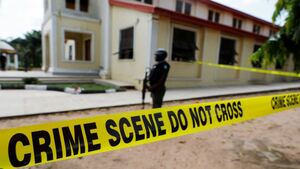The move comes at a crucial juncture as the country prepares for its first direct elections while facing sustained pressure from the militant group al-Shabaab.
Though no formal explanation was provided for the reshuffle, observers say it reflects the government's urgency to stabilise the security landscape ahead of the vote. Fiqi’s appointment, in particular, appears aimed at strengthening defence capacity as Somalia transitions away from indirect electoral systems dominated by clan elders.
“This is a critical moment,” said political analyst and Researcher Kwezi Mngqibisa. “The Defence Ministry becomes pivotal when the legitimacy of the upcoming elections depends heavily on whether people feel safe enough to vote.”
Fiqi, who has previously served in Somalia’s security and foreign policy sectors, is no stranger to the intricacies of governance or the shifting alliances within Somalia’s political elite. His return to the cabinet is also seen as a nod to clan representation, an enduring aspect of Somali politics, as well as a strategic bet on his ability to navigate both domestic complexities and international diplomacy.
Tensions between the Somali government and the African Union (AU) have recently flared, culminating in the dismissal of the AU’s deputy envoy. According to Mngqibisa, this points to Mogadishu’s increasing desire to take charge of its own security affairs.
Meanwhile, much of the country remains contested territory. Al-Shabaab continues to wield influence in several regions, offering basic services in areas where government presence is limited, raising questions about state legitimacy beyond military control.
In a surprising twist, al-Shabaab has reportedly expressed interest in engaging regional leaders, suggesting a possible shift from militancy to political relevance.
--ChannelAfrica--













